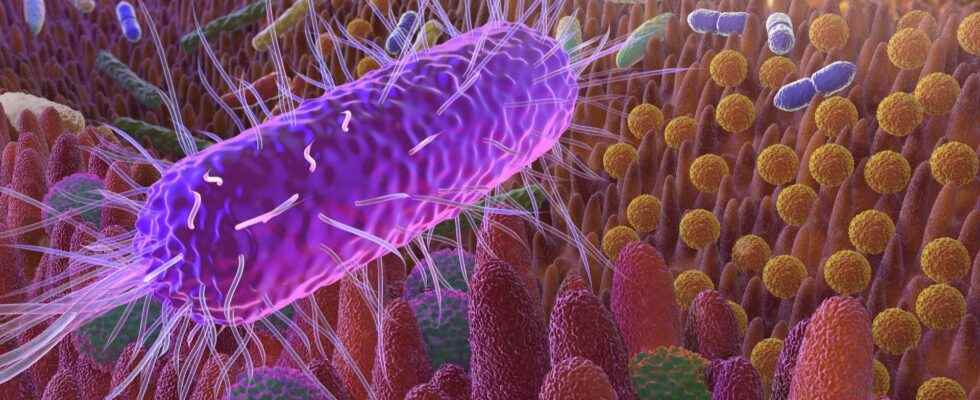You will also be interested
[EN VIDÉO] The intestinal microbiota, a precious ally for our health In the body, there are different microbiotas: that of the skin, the mouth, the vagina… But the most important is the intestinal microbiota. Scientists have known about its potential for a long time, but the development of new techniques makes it possible to deepen research to describe the nature of host-microbiota interactions, those of microorganisms between them, and their impact on health.
What if the bacteria that live in our gut could be a way to fight aging? The transplantation of microbiota of a young mouse in an old mouse can reverse age-related inflammation in the brainretina and intestine of rodents according to a new study published in Microbiome. It is not the first time that a graft of microbiota makes it possible to “rejuvenate” mice.
The microbiota reduces age-related inflammation
In this case, the scientists first killed the microbiota of the recipient mice before giving them fecal pellets that contain the microbiota of a younger or older mouse. They also analyzed markers of inflammation in the brain, retina and intestine of transplanted mice. When a young mouse is grafted with a microbiota from an older rodent, it shows inflammation characteristic of age. Conversely, an old mouse, grafted with the microbiota of a young animal, sees these characteristics resorb.
The implications of this research are still unclear, but scientists believe that modulations of the microbiota could prevent the inflammation problems that appear with age. Research still needs to be done to estimate the long-term benefits of these microbiota transplants on animal health and ultimately on human health.
Fecal transplant rejuvenates mice
Article ofEleanor Sole published on August 15, 2021
In mice, the transplantation of a faecal microbiota from a young mouse to an old mouse seems to “rejuvenate” certain capacities of said mouse.
About two kilograms of microorganisms live in our digestive system, according to theInserm. From virusbacteria, mushrooms and parasites that influence our health, including our immune and neurological functions. A new study, published in Nature Agingproposes that this microbiome could be a relevant therapeutic target to promote healthy aging.
A finding from transplants of microbiota fecal. The donors were mice, either 3 to 4 months old or 19 to 20 months old, while the recipients were systematically 19 to 20 months old. Only transplants from young mice produced effects. They have ” reversed aging differences on some aspects of immunity, the authors write, but they also attenuated cognitive impairments associated with aging.
Everything in its time
” Previous research […] have shown that the microbiome intestine plays a key role in the aging and the aging process, recalls John Cryan, co-author of the study. This new research could be a game-changer as we have established that the microbiome can be harnessed to reverse age-related brain deterioration. We also see evidence of improved learning ability and cognitive function. »
These results could have important implications for the geriatrics or the prevention from symptoms of ageing. But he is ” still early “, warns John Cryan, to project himself into apps therapies: Much more work is needed to see how these findings might translate to humans. »
Support an editorial team committed to popularizing science on Patreon!
Our mission ? Return the knowledge accessible to everyone.
We produce our own articles, investigations and reports every day, all on a human scale. Support us in this approach and this ambition.
Subscribe to Futura on Patreon!
Two subscription plans are offered to you with the following advantages:
- ” Futura ad-free »: get guaranteed ad-free access to the entire site for €3.29/month (+VAT).
- ” I participate in the life of Futura »: in addition to access without advertising, take part in the life of our independent media (votes, new content, surveys, etc.) for €6.29/month (+VAT).
Interested in what you just read?
